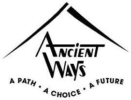Providing accurate knowledge and then seeing it get passed on to everyone in the community is the key. We plan to utilize all people who have played a critical role in our collaboration over the years, potentially reaching out to the youth as well, through our Mhandara Monthly Care (MMC – washable reusable menstrual pads with purse, guidance, bucket and soap) project in each of these steps, so they are honored as the young adults they are becoming…it is their survival too!
(A) Hand-Washing
Effective technique using soap will be demonstrated and practiced, as one member of the family comes to the Community Center to receive a bar of soap. About 1/5 of them would come on each of 5 mornings and the health inspector, and maybe police, would be present to assist with social distance, etc.
* A children’s counting song is being taught to verify that 20 seconds has been met, as the hand washing is completed.
* Multiple hand-washing stations are set up using a traditional chigubhu allowing water flow operation with a foot pedal, which tips a water container.
* Everyone will be required to wear a face covering when they come to receive soap. Each family is checked off of the village survey list as they receive their bar.
* In December, we did some hand-washing tutorials using Glo Germ and will be asking all involved in those meetings to help educate.
* Short videos are being shared to demonstrate hand-washing technique as well as the US social distance standard of 6′. The Zimbabwe standard and some parts of Europe is only a meter (40″)
* The soap bars are extremely large (approximately 14”) and expected to last 2 months.
(B) Masks
The goal is to reach an estimated 400 families with either a mask, or the cut-out fabric to sew their own. If possible, we would provide 2 masks per family. The 12/31/19 village survey is being used to verify numbers.
* A series of small videos have been sent via Whatsapp to our team to show how to make a mask. They get 13 masks out of their meter of fabric (which is 1.5 meters by 1 meter).
* Fourteen seamstresses there are holding initial meetings on how to work together on this project while maintaining social distancing, wearing masks, and not shaking hands, as is the normal polite Shona custom. They have made their first masks with this pattern!
* Their last trip to town was a failure as the city was in military lock down. Our team has secured an official letter with the help of the member of Parliament, which has been obtained from the police station, and stamped by Chief Nherera, to allow traveling to town. Western Union has reopened so we are free to affect funds transfers.
* When there are open fabric stores, they will buy high-quality cotton for the mask-making. If stores are closed, they will use the fabrics we stock piled in March for 120 MMC girls. If CHANGE! needs to borrow these, there are enough to provide each family with 2 masks. This loan will allow for a more immediate implementation of the program.
* Masks are planned to be distributed at the Community Center, to the representatives of one fifth of the families, on a given day. Everyone would be required to keep social distance, wear a scarf on their face, and be found on the village survey register.
* Upon distribution we would educate about correct Covid-19 hygiene practices, and that these masks are not designed to hospital standards, but are significant for reminding about eliminating face touching, catching droplets from coughs and sneezes, and general reduced spread of infection. A leaflet is planned for distribution at this time.
(C) Covid-19 Hygiene Practices
The Zimbabwean government is providing education on texts, radio and TV about the standard, but we plan to support that effort with our own collaboration on a leaflet in Shona, plus speaking to the residents as they are receiving their masks and soap, providing full understanding of the whys involved in these techniques. We are being given a different standard of hygiene practices in the US, which are more stringent, so we will be advising accordingly. It is regarding the distance that germs fly from sneezes and coughs.
All volunteers who have been part of Nhimbe and have been working at the Community Center over the years will be given the best information available and can, if desired, be involved in disbursing the knowledge and resources that we can provide. The following practices will be explained in person during mask and soap distribution plus also in the leaflet that they will take home.
Social Distancing – We are asking everyone involved in making masks and distribution to be particularly careful about how close they are when helping, always remembering they must protect themselves, but also, that they are being leaders and demonstrating correct behavior. We plan on receiving help from the Health Inspector, as well as the local police if needed, to maintain 6’ between residents as they will be receiving soap or masks for instance.
Cough/Sneeze Protection – A mask is helpful in public, but even at home, coughing or sneezing inside one’s shirt (down inside the front) is a most effective barrier, and better than one’s arm or handkerchief.
Avoiding Face Touching – Face touching opens the door to the virus, by simply touching anything that an infected person has touched, and then touching your eyes, nose, or mouth, making transmission direct. This information must be fully explained.
Understanding Symptoms and Support – Being able to identify Covid-19 symptoms is very useful to reduce worry and health system burden, while being proactive to begin self-isolation when suspecting infection. Additional information will be provided as needed when someone is ill, on sleeping positions, massage, etc.

